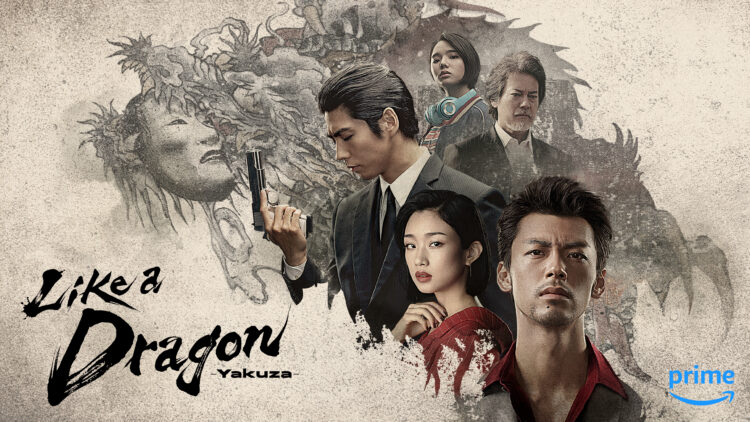
Thanks to Amazon Prime Video, we had the chance to preview the first three episodes of Like a Dragon: Yakuza. Based on SEGA’s global hit video game series, this crime-suspense-action adaptation spans two decades—1995 and 2005—following the lives of childhood friends and exploring the lasting consequences of Kazuma Kiryu’s choices. Kiryu, a feared Yakuza warrior, is renowned for his combat skills and strong sense of justice, duty, and humanity.
But does this adaptation live up to the video game’s reputation for fans, and is it worth watching for newcomers to the series? Check out our review in the next section of the article. 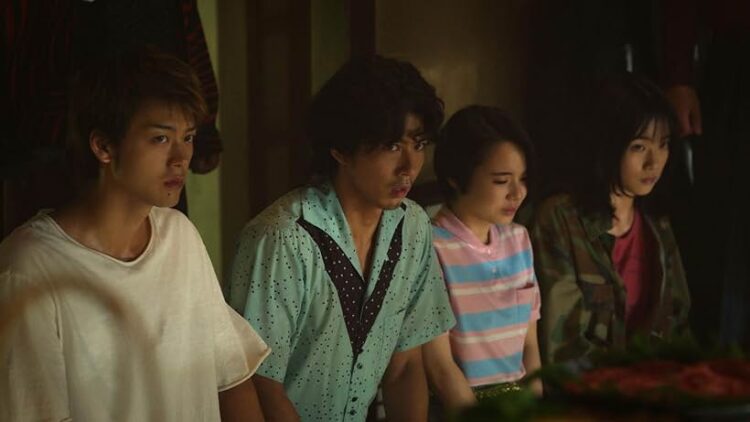
Like a Dragon: Yakuza follows the journey of four orphans—Kazuma Kiryu, Akira Nishikiyama, Yumi Sawamura, and Miho Nishikiyama—who grew up together at Sunflower Orphanage. Hoping to escape to a new life, they steal money from the Dojima family, only to be caught and threatened by the Yakuza. However, Kazama, played by Toshiaki Karasawa, steps in to protect them from punishment. To make amends with the Dojima family and shield his friends, Kiryu offers to join the Yakuza, aiming to become the Dragon of Dojima, the figure he admired as a child.
The choices Kiryu makes set off a chain of events that dramatically change the lives of his friends, especially Nishiki. The series intertwines crime, sorrow, tragedy, and death, with the narrative moving fluidly between 1995 and 2005.
As I watched the first three episodes, it became clear that Like a Dragon: Yakuza adapts key storylines from the original game and its remake, Yakuza Kiwami, but with fresh twists to keep the story engaging. The series explores some different origins for character interactions and alters certain events, making it feel both familiar and new.
Under the direction of Masaharu Take and Kengo Takimoto, the series feels more grounded in realism compared to the games, which often feature more exaggerated, sometimes goofy moments. The action sequences and dramatic beats are more restrained but still effective, with a visual style that reflects the neon-lit vibrancy of Kamurocho. The show does a great job capturing the essence of the iconic entertainment district in both eras, showing a lively district filled with people and bustling attractions.
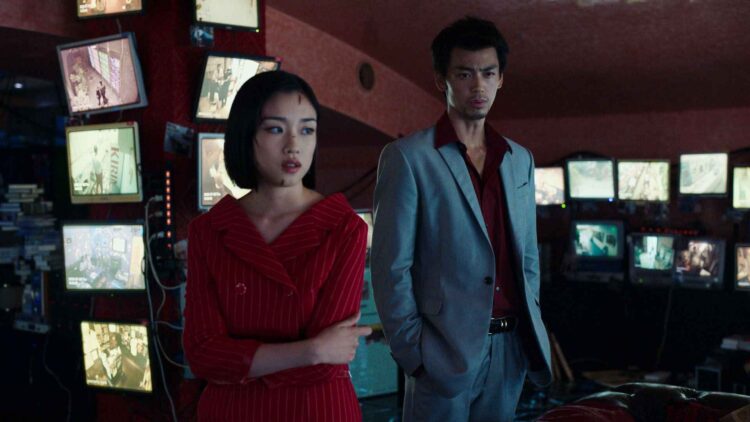
Ryoma Takeuchi’s portrayal of Kazuma Kiryu is particularly impressive. While he doesn’t physically resemble Kiryu from the games, he captures Kiryu’s tough exterior, but more importantly, his underlying care for the people around him. Takeuchi’s performance gives Kiryu a sense of quiet intensity, making him look every bit the badass in his iconic suit. Fans will appreciate his portrayal of Kiryu’s protective nature.
Kento Kaku’s Nishiki offers a strong contrast, particularly in the 1995 segments where he adds a lighter, more comedic touch to the character. His on-screen chemistry with Takeuchi really highlights their brotherly bond. In the 2005 segments, Kaku effectively conveys Nishiki’s transformation into a colder, more hardened character, marked by inner darkness. Kaku skillfully navigates this transition, making Nishiki one of the most complex characters in the show.
Yuumi Kawai as Yumi Sawamura presents a more involved and independent version of the character compared to her game counterpart. She’s determined, capable, and adds a new layer to the story with her personal quest to find her older sister.
Hinano Nakayama as Miho Nishikiyama is a delightful addition, bringing a cheerful, childlike energy to the group. Her character provides emotional warmth and serves as the heart of the trio, making her interactions with the others endearing.
Munetaka Aoki as Goro Majima is fantastic in my opinion, fully embodying Majima’s unpredictable nature. His first encounter with Kiryu in the series was a standout moment, especially how this show takes a different direction and I’m eager to see more of Majima’s wild antics in the upcoming episodes. Fans of Majima will likely want even more screen time for this fan-favorite character.
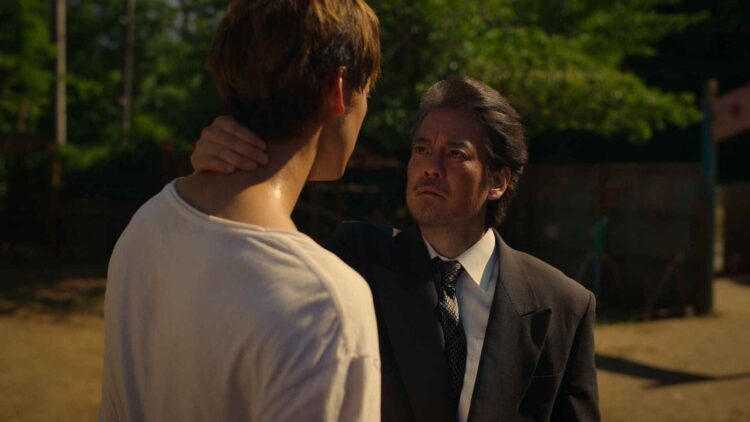
I’d also like to praise the other actors—Toshiaki Karasawa, Subaru Shibutani, and Masaya Kato—for their roles as Shintaro Kazama, Makoto Date, and Sohei Dojima, respectively. These characters, well-known to Yakuza fans, are portrayed with a balance between staying true to their video game counterparts while also offering the actors’ own interpretations. There are a few characters from the game that have a role in the show. However, despite their potential, some of these characters didn’t add much to the story during their limited screen time. They felt underutilized, especially considering their importance in the Yakuza games.
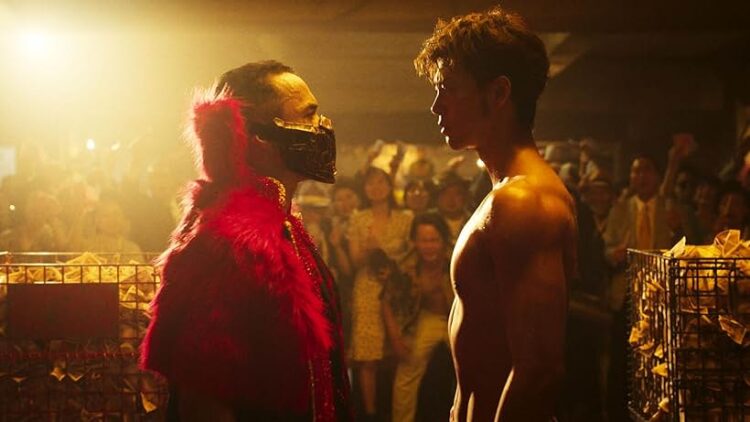
When it comes to the action, the series takes a more restrained approach compared to the video games. While the games are known for their flashy, over-the-top combat, with Kiryu smashing enemies into walls and using his surroundings as weapons, the show opts for a more grounded, serious tone. Unfortunately, this results in fight scenes that feel underwhelming and too brief. Fans hoping for the kind of high-energy battles the games deliver may find themselves disappointed at least with the first three episodes.
Despite the underwhelming action, the show’s pacing remains strong with the crime drama. The back-and-forth between 1995 and 2005 is handled well, allowing viewers to see how the characters change over time. The story balances emotional moments and violent confrontations, staying true to the darker themes of the games.
One of the show’s key objectives is to introduce the Yakuza/Like a Dragon franchise to a broader audience. With its focus on crime drama and the complex relationships between characters, the show is accessible even to those who have never played the games. However, as a fan of the franchise, I still recommend checking out the early games if you want to get the full experience. Yakuza 0 and Yakuza Kiwami on Steam are great starting points, and if you own a Nintendo Switch, Yakuza Kiwami is now available there as well.

Overall, Like a Dragon: Yakuza is a decent watch, though not without its flaws. The show takes a different direction compared to the games, which may raise some eyebrows, especially for long-time fans expecting a faithful adaptation. However, it has its strong moments, particularly in the way it explores the relationships between the characters and the unfolding story across two time periods.
While the show captures the darker, dramatic tone of the Yakuza series, I do wish it had incorporated more of the quirky, lighthearted moments that the games are known for. These unique, offbeat elements often give the games their charm and balance the intense action with humor and heart. Additionally, the fight scenes in the show could have been more exciting and drawn-out, reflecting the over-the-top, brutal brawls that fans love from the games.
Despite these shortcomings, Like a Dragon: Yakuza offers a fresh perspective on the franchise. It may not be a perfect adaptation, but it’s worth watching for its character-driven moments and the way it brings Kamurocho to life in a live-action format. With the next batch of episodes coming soon, it’ll be interesting to see how the story evolves.
Have you watched Like a Dragon: Yakuza on Prime Video? What are your thoughts so far? Let us know in the comments below!




I loved the show!! It is not a copy of the original game but I saw an interview by Sega guy head of the studio saying that what exactly aimed for and I think it as accomplished the goal. I cannot wait to see the rest of episode how the film makers will unfold this story.